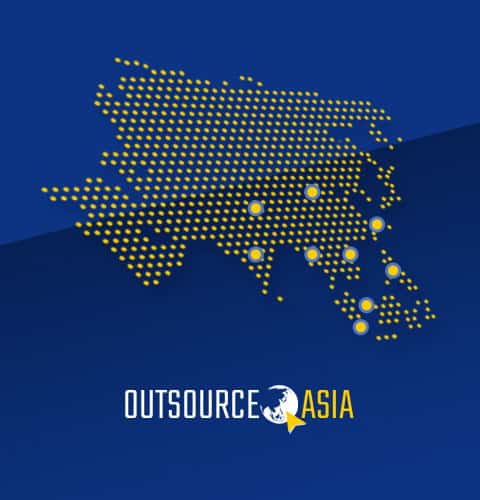
Best Practices in Setting Up Policies When Outsourcing
There is a perception that outsourcing means “out of sight, out of mind”.
A quick search on recent outsourcing disasters demonstrates how wrong this is. The truth is: a poorly managed outsourcing project can be disastrous.
When you hire a third party to perform outsourced business tasks on your account, you expose your business to new risks such as confidentiality breaches. You can save your business a lot of money, time, and even a legal case by establishing a clear outsourcing procedure in advance.
Why is Policy Important in Outsourcing?
To operate effectively and successfully, every organization needs policies and procedures.
By working together, they reduce the risk of liability for your organization. Additionally, they promote consistency across the organization for both employees and customers.
The consistency of employee interactions with customers builds a healthy reputation for your business.
In successful organizations, HR policies aren’t just compliance requirements. They recognize that these vital components set guidelines and parameters for how their businesses operate.
It is impossible to have rules without adequate and well-developed policies and procedures. Sadly, without defined rules, people make up their own.
A well-drafted set of policies and procedures ensures that your company’s rules, standards, values, culture, and benefits are clearly defined. The policies and procedures address common HR issues or questions, and they also minimise your risk of being sued for unfair employment practices.
Additionally, policies and procedures increase compliance, improve internal processes, and enable consistent processes and structures. They also help you handle incidents and crises, and tell employees who to contact if they need assistance.
As your company enters into an outsourcing agreement, policies & procedures prevent chaos from erupting. Clear policies and procedures lead to smoother organization operations.
In this way, organizations will function as they should, and mistakes and hiccups can be easily identified and corrected.
Your organization will be able to use time and resources more efficiently if staff follow policies & procedures. Therefore, your organization will be able to focus on expanding and achieving goals.
Policies and procedures help employees and outsourcing partners know what they’re responsible for, what’s expected of them, and what supervisors and coworkers can expect from them. As a result, they are able to perform their jobs with confidence and ease.
Having these in place ensures consistency throughout the company. You need to be consistent in your customer service or product quality to maintain a good business reputation.
In addition to clarifying internal processes, policies and procedures help employees provide value and consistency to customers.
Finally, well-established policy helps mitigate the risk that comes with outsourcing. Outsourcing requires businesses to adhere to its own laws, regulations, standards, and best practices. In order for your organization to comply with local, state, national and international laws and regulations, policies and procedures are crucial. Organizations are protected from legal liability when disruptions occur when employees understand what is expected of them.
Who is Responsible for Policy in Outsourcing?
Is the Human Resources department responsible when an organization outsources or subcontracts services?
To put it simply; yes. Whether the services are in-house or outsourced, HR is responsible for ensuring checks and balances are in place. It may seem that outsourced services are more remote, but they are crucial to the core purpose and reputation of the organization.
In order to develop monitoring and controlling mechanisms within an organization, Human Resources departments should provide guidance and support.
It is clearly HR’s responsibility to develop policies and procedures, as well as to monitor them. It is HR’s responsibility to oversee the development and maintenance of the organization’s policies and procedures. It monitors the success of the project’s strategic direction and operational plans through the performance management system.
“Proof of compliance” with procedures and processes is one component of the performance measures. Operational audits will be conducted to verify compliance with policies, procedures, and processes.
A performance management system relies on policies, procedures, and proof of compliance (sometimes called the “three P’s”), as well as financial and operational delivery measures. Operational audits play a key role in providing proof of compliance and outcome standards.
What Are the Best Practices for Outsourcing in Your Business?
The focus is shifting from the benefits of outsourcing to how to do outsourcing correctly as more companies choose to outsource parts of their business processes. It is important that businesses have streamlined structures and regulations that support their outsourcing operations in order to reap benefits such as reducing overhead costs, improving time management, and increasing employee productivity.
- Provide Outsourced Staff with Clear and Concise Process and Policy Documentation
Outsourcing is good for business, isn’t it? Outsourcing critical business processes and tasks requires a clear contract of expectations. Clarifying expectations in an outsourcing arrangement is a common mistake, but it can have disastrous consequences in the future. Among the consequences are the sharing of confidential information, the failure to meet deadlines, and misunderstandings about the price.
Deloitte’s Outsourcing Handbook shows that organizations fail to benefit from outsourcing unless they establish an effective governance process and manage legal, financial, and commercial risks. Prior to signing contracts with an independent worker or outsourcing supplier, key outsourcing documentation can be drafted.
A nondisclosure or confidentiality agreement is included, as well as a contract that outlines HR protocol for reporting issues, deadlines, and key reporting individuals.
- Make Sure Your Outsourcing Provider Meets Your Specific Needs
Making outsourcing successful relies heavily on choosing the right outsourcing provider. Besides researching outsourcing options, you should also assess your own business, its strengths, weaknesses, and culture. It may be tempting to choose the cheapest outsourcing option, but it’s not always the best, since it conflicts with business goals like providing 24-hour customer service.
Conduct an assessment to identify business goals, the financial benefits of outsourcing, and its impact on key stakeholders, such as loss of control, before choosing an outsourcing supplier. Don’t let your business drive you to outsourcing but recognize the signs.
If you’re having difficulty handling specialized projects or your team lacks the expertise to handle an upcoming project, it may be time to outsource.
You should, however, build your outsourcing provider must-have list based on your business objectives during the assessment phase, not the other way around. When researching the variety of web and application design firms, think about what you expect from your outsourcing model when outsourcing software or web development. Choosing a fully managed software development outsourcing company may be the right choice for you if you are comfortable relinquishing full control for a project.
- Prioritize Regulation and Confidentiality of Data
Lastly, outsourcing can present the risk of security and information breaches. Be sure to understand how your provider or contractor handles sensitive information such as project reports, budgets, and traffic data before signing an outsourcing contract.
Outsourcing providers can provide cybersecurity training to address data privacy concerns. Ensure you adhere to regulatory compliance laws, such as international data transfer laws (if you outsource internationally).
Conclusion
There are many trends that will shape your business. Outsourcing is one that can be incredibly beneficial to your business if it’s done right.
Outsourced services need to be managed as well as, if not better, than in-house services. Creating and enforcing strong policy helps ensure this. Part of the responsibility of working with an outsourcing provider is to monitor and control their services.
By following some of the best practices for outsourcing, you can minimize the bumps in the road and maximize the value it adds to your business operations.
How do you select the perfect outsourcing partner? If you need help in finding the right outsourcing partner, book a FREE APPOINTMENT with Outsource Asia experts today.


